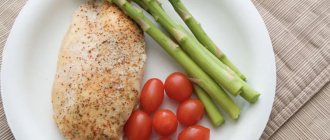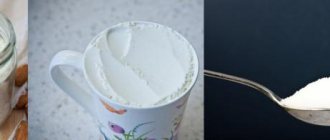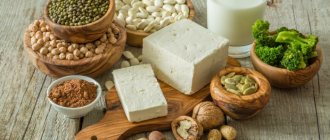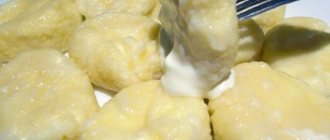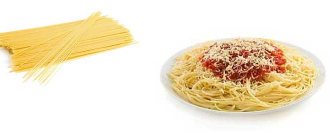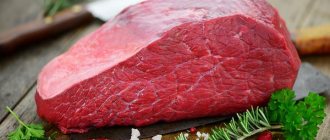What is useful about cottage cheese, what is contained in this product. How much protein does it contain - in fat and low-fat versions. Cottage cheese is a healthy, tasty and satisfying product that is in great demand in bodybuilding. Its features are a large amount of protein (protein) and the presence of a number of other useful elements in the composition. It is obtained by fermenting milk and then removing whey from the composition.
Depending on the manufacturing method, it varies in fat content:
- Bold. In this case, the fat percentage is 18%.
- Bold - 8-9%.
- Low-fat - up to 3%.
Many athletes confidently claim that cottage cheese is a protein. And they are indeed right. The product (per 100 g) contains 15-18 g of casein protein , characterized by a rich amino acid composition and excellent digestibility.
At the same time, it takes an average of 2-3 hours to break down the protein. For this reason, it is recommended to take cottage cheese at night, in the morning or 2-3 hours before training. Below we discuss in detail how much protein is in cottage cheese, what beneficial substances are present in it, and what are the features of a homemade product.
Protein content
There is a widespread belief that the fat content and type of cottage cheese do not matter and each type contains approximately the same amount of protein. It's a delusion. The volume of “building material” directly depends on the fat content. In addition, the amount of protein in cottage cheese is directly dependent on the method of production of the product - at home or in a dairy factory.
To figure out how much protein is in 100 grams of cottage cheese, you should seek help from special tables that clearly show the dependence of protein content on fat content level:
- 0% fat - 16.5 g;
- 0.1% fat - 16.7 g;
- 0.2%, 0.3% and 0.6% fat content - 18 g;
- 1% fat - 16.3 g;
- 1.8% fat - 18 g;
- 9% fat - 16.7 g;
- 11% fat - 16 g.
For the night
And now about the time of day. Many of us are interested in such a product as cottage cheese (is it protein or carbohydrates, is it possible to eat it before bed, or is it better to do it in the morning?). Complex protein can supply human muscles with nutrition for several hours. This is called a kind of “long-term feeding”. That is, the muscles receive the necessary “building material” during sleep. They are currently growing.
Do not forget also that any meal (with proteins, fats and carbohydrates) can cause a surge in insulin in the blood. This glucose-utilizing hormone is a growth antagonist produced during sleep and promotes various anabolic processes.
The total amount of protein (slow or fast) entering the body per day is very important. By taking cottage cheese before bed, you bring great benefits to your body (for your daily diet)
Homemade cottage cheese
As mentioned above, the difference between a store-bought and home-made product is significant. Experienced athletes know that homemade milk is healthier. This product usually contains 18 grams of protein (per 100 grams). In addition, the composition contains no less useful elements, including lysine and tryptophan. Casein, which is the basis of cottage cheese, is considered the main supplier of calcium, phosphorus and amino acids.
Just don’t overdo it and rely only on cottage cheese - everything should be in moderation. Thus, the daily protein intake, sufficient to cover the body’s needs, is 1-1.5 grams per kilogram of weight . For athletes, this figure increases to a level of 2-3 grams per kilo .
Experienced nutritionists recommend taking 200-300 grams of cottage cheese with one percent fat content per day. Plus - the minimum calorie content, which is at the level of 160 kcal.
Useful properties of cottage cheese
Cottage cheese immediately after training
Eating fermented milk products immediately after training is the right decision; it will allow you to restore energy and protein reserves to “tired” muscles.
You need to remember that depending on your goals (weight loss, weight gain, cutting), the amount of cottage cheese consumed that is necessary specifically for you will depend.
Drying
If you are now at the drying stage, that is, you are not interested in acquiring unnecessary kilograms, then you should not eat cottage cheese with a fat content of more than 5%.
It is recommended to eat it in small portions of 150 grams throughout the day. No need to add honey or sugar. Don't like this product? It doesn’t matter - you can replace it with egg whites, fish, and poultry. The last meal before training is 2 hours, after - 1.5 hours.
Watch the video about cottage cheese from Stanislav Lindover.
Muscle gain
When it comes to gaining muscle mass, cottage cheese is your best friend.
It is recommended to consume natural fermented milk product, since it contains a lot of useful protein, which is a building material for muscles. Unnatural cottage cheese contains a lot of useless soy. When gaining weight, you need to eat cottage cheese in huge quantities without fear (without exaggeration). By eating a serving of cottage cheese 1 hour before bed, you will supply your body with energy and proteins. The body recovers and grows during sleep. Casein effectively slows down catabolism, so it would be rational to use it at night.
If you decide to lose weight
During this period, you need to eat only low-fat cottage cheese in order to reduce the total calorie content of food due to fat. The portions are small, but you can increase the number of meals.
We recommend eating a serving of cottage cheese 2-3 hours before training, but not earlier. At the end of the training, you can eat after about 1.5-2 hours.
How to make cottage cheese tastier?
Cottage cheese in its pure form will quickly become boring, and you will literally turn away from it. What to do in a similar situation?
The good news is there are thousands of ways. For example, beat cottage cheese, nuts, raisins, dried apricots, banana, apple, yogurt in a mixer. As a result, you will get the perfect and, most importantly, very tasty curd cocktail.
It's even healthier because you hardly have to chew, plus you'll get a huge range of vitamins, minerals and other nutrients.
What can be added to cottage cheese:
- Fruits and berries
- Honey
- Syrup
- Dried fruits
- Nuts
- Dairy products
The composition of the mixture can be changed from time to time by adding ingredients to taste. Such necks are better absorbed by the body and do not become boring. The maximum daily serving of cottage cheese is 500 grams (this should not be exceeded).
Calorie content
The amount of protein in the composition depends on the fat content of the cottage cheese, but not only this parameter is important. The lower the fat content, the lower the calorie content.
So, a five percent product contains 120 kcal per 100 grams . It is useful for people of any age. A fattier product (9%) guarantees the intake of 160 kcal . It is most suitable for preparing cheesecakes, casseroles, cottage cheese and other dishes. But for people who are on a diet, this option is not suitable.
If your goal is to lose a few kilograms, then you should give preference to cottage cheese with a minimum level of fat content (up to one percent). The advantage is a high percentage of protein in the composition and a minimal amount of fat. The total calorie content is 85 kcal , which will not harm the figure in any way.
For a low-fat diet only?
So how to choose cottage cheese for the right diet? First, it is important to understand how it is divided according to the degree of fat content:
- Low-fat cottage cheese is usually called a product with a fat content of up to 1.8%.
- Low-fat or low-fat cottage cheese - from 2 to 3.8%.
- Classic or medium fat cottage cheese – 4–9% fat.
- Fat cottage cheese contains from 12 to 23% fat.
Most people who want to lose weight eat only low-fat cottage cheese. On the one hand, this is useful, but there are several pitfalls.
Low-fat and low-fat cottage cheese contains 18% protein, classic cottage cheese contains 16% protein, and full-fat cottage cheese contains only 14% protein. And it is better to make a decision on choosing a product based on the required amount of protein and fat at the moment. This is especially important for athletes and people losing weight - we choose low-fat varieties of cottage cheese.
However, to replenish energy, you will have to eat more low-fat cottage cheese, since beneficial substances are less absorbed when the fat content decreases.
. For example, calcium from low-fat cottage cheese is absorbed 30–40% less than from classic cottage cheese. The absorption of calcium is promoted by fat-soluble vitamin D, and it is sufficient only in cottage cheese with medium and high fat content. Vitamins A and E are also absent from low-fat cottage cheese.
When consuming low-fat cottage cheese, animal fat will need to be obtained from other products. It is involved in the production of hormones, the formation of brain cells and the nervous system, and also helps thermoregulation.
Having completely deprived your body of animal fats, within a month you can notice how your hair and nails have become brittle and your skin is dry. This is the first sign that it's time to stop eating low-fat foods.
.
If you are still inclined towards low-fat cottage cheese, remember that starch is often added to it for stabilization and volume, and flavorings and sweeteners are added to it to improve taste. Real low-fat cottage cheese is dry and tasteless.
You can often come across a recommendation to mix low-fat cottage cheese with sour cream for a better taste. But what then is the diet? Isn’t it easier to take good medium-fat cottage cheese and eat it with pleasure?
Cottage cheese with honey
A favorite recipe from childhood is cottage cheese with honey or jam. Unfortunately, this is not the best option for your figure. It will be much healthier, but no less tasty, to add berries or grate a green apple. If it is still important to eat low-fat cottage cheese, add stevia syrup or stevia jam to it, and you will get a real dietary dessert.
Composition and benefits
When organizing your diet, you should know the following points:
- how many grams of protein are in cottage cheese;
- what vitamins are contained in it;
- what effect it has on the body.
We have dealt with the first question. It remains to study the composition and benefits of such a popular product.
So, cottage cheese contains not only protein, but also a lot of other elements:
- fats - 0-15 g;
- carbohydrates - 2 g;
- retinol - 0.08 mg;
- vitamin B1 - 0.04 mg;
- vitamin B2 - 0.35 mg;
- ascorbic acid - 0.5 mg;
- vitamin PP - 0.5 mg;
- iron - 0.4 mg;
- calcium - 165 mg;
- potassium - 113 mg;
- magnesium - 23 mg;
- phosphorus - 225 mg;
- sodium - 41 mg.
Thanks to this versatility, the product has a wide range of actions:
- Ensures normal functioning of the body.
- Strengthens bones and tooth structure.
- Normalizes the health of a pregnant woman and increases the likelihood of bearing a full-fledged child.
- Helps in the fight against excess weight.
- Participates in the construction of protein cells and muscle growth.
- Strengthens the immune system.
How much protein is contained in 100 grams of cottage cheese?
Curd products combine the benefits of proteins, amino acids and vitamins
It is important to know that foods rich in protein in large quantities can harm the body. To prevent this from happening, you need to add carbohydrates and fats to protein in your diet.
Useful properties of cottage cheese
Cottage cheese is an important product in the diet of children and adults. Cottage cheese contains calcium and phosphorus. These substances are responsible for the formation of bone and muscle tissue. Therefore, curd products are useful for children, pregnant women and people with bone diseases.
In childhood, the development of a therapeutic diet largely depends on cottage cheese.
Protein-rich foods can often cause allergies. Curd food is not one of them. It can be used for diseases of the liver, kidneys, gastrointestinal tract, heart and other ailments.
Curd products can be included in the diet of people with intolerance to animal proteins. This will not harm the body and will compensate for the lack of building material.
https://youtube.com/watch?v=wtXFob3_Yys
Elderly people are also recommended to eat cottage cheese. The protein of the product is easily digestible. It is often used in medical diets for the prevention of atherosclerosis, heart attack, and hypertension.
An overweight person is prescribed a diet based on cottage cheese. In this case, you need to ensure that the product has a low percentage of fat content.
The properties of cottage cheese help in restoring the body after various injuries. This includes regenerating the nervous system and increasing hemoglobin in the blood.
For a person on a vegetarian diet, cottage cheese food will be a salvation from anemia. Since it contains the necessary vitamin B 12, amino acids and protein. In addition to cottage cheese, B 12 is found in meat, fish and egg yolk.
Cottage cheese and protein
Since protein is an important building element, it is necessary to have a clear understanding of its content in food.
If you look for information about which products contain a lot of protein, then cottage cheese products will not be in last place in terms of protein content.
Protein is found in the following foods:
- Red caviar;
- Soy;
- Pork;
- Nuts;
- Beef;
- Liver;
- Poultry meat;
- Tuna;
- Fatty fish;
- Eggs.
Foods high in protein, such as eggs, meat, nuts, take a long time to be absorbed by the body. Therefore, many people prefer cottage cheese.
The basis for calculating protein here is the fat content per 100 g of product.
| 16,5 | |
| 0,1 | 16,7 |
| 0,2 | 18 |
| 0,3 | 18 |
| 0,6 | 18 |
| 1 | 16,3 |
| 1,8 | 18 |
| 5 | 21 |
| 9 | 16,7 |
| 11 | 16 |
| 18 | 14 |
The protein ratio also depends on where the cottage cheese was produced.
As you know, protein-rich foods made at home are much more nutritious and beneficial for the body.
How to determine quality cottage cheese?
To get the maximum benefit from the product, it is important to consider a number of secrets that will help when choosing:
- Compound . The ideal option is when the composition contains only two ingredients - sourdough and cow's milk. But this rarely happens. Most often, enzymes, calcium chloride and other additives are added. Please note that the more auxiliary components, the lower the quality.
- GOST . Many people believe that TU and GOST are no different. This is wrong. If the product complies with GOST, then the manufacturer is responsible for ensuring that what is written on the packaging corresponds to reality.
- Price . Good cottage cheese should not cost less than a liter of milk. On average, the equivalent is as follows - 200 grams of cottage cheese = 0.5 liters of milk. In practice, the cost is even higher. If the price is too low, then there is a high risk of purchasing a fake.
- Best before date . A good product lasts no more than a week. If the shelf life is longer, then the composition contains a lot of preservatives that are unlikely to be beneficial to the body.
- Appearance . Excessive liquid or dryness indicates a violation of the technology. This option is not worth buying.
There is no need to check whether cottage cheese contains protein - this has already been proven. But it is necessary to establish the fact of the content of starch or vegetable fats. The following tests will help you:
- For vegetable fat content . To conduct the experiment, it is enough to leave the product for 24 hours at room temperature. If it has slightly soured and retained its color, then the quality is high. If a yellow coating appears and the smell changes, then this product is not natural.
- For starch content . The essence of the experiment is the contact of iodine with cottage cheese. If the mass has turned blue, then starch is present; if the color is still brown, then there is no starch.
In conclusion, it is worth highlighting a few recommendations in terms of preparing such a healthy dish. To obtain a better taste, cottage cheese can be mixed with the following products:
- sugar;
- banana;
- nuts;
- raisins;
- dried apricots.
To dissolve it is worth adding:
- low fat sour cream;
- juice;
- kefir;
- yogurt.
That's all. Knowing how many grams of protein are in cottage cheese per 100 grams and how to prepare the product, it will not be difficult to formulate a diet, improve health and achieve your goals in sports.
What to look for when buying cottage cheese
Experts recommend taking into account a number of rules when choosing:
- Composition - it is recommended to choose a product that contains only two components: sourdough and cow's milk. Currently, this is a rare case: enzymes, flavor enhancers and other components are added. The more auxiliary components, the lower the quality of the product.
- GOST is the sign that guarantees that what is stated on the packaging corresponds to reality.
- Cost – fermented milk products cannot cost less than a liter of milk. A kilogram of cottage cheese is obtained from two and a half liters of milk. Only if the price matches can you hope for normal quality.
- Shelf life – the higher the expiration date, the lower the quality. The average shelf life of store-bought curd mass is a week. Anything that lasts longer is stuffed with preservatives and stabilizers.
- Appearance – good cottage cheese looks attractive and does not have a dry or liquid consistency.
It would also be a good idea to establish the content of starch and vegetable fat. You can do it like this:
- The presence of vegetable fat: for this you need to leave the fermented milk product indoors for a day. If it changes its taste to a more sour one, but remains the same color, the cottage cheese is natural and the quality is high. If a yellowish coating appears on the milk product and the aroma has changed, the product is unnatural.
- Starch content: you need to drop iodine onto a piece of cottage cheese; if the color changes to blue, there is starch in the curd mass.
ReadAbout viburnum decoction and its health benefits
Iodine
